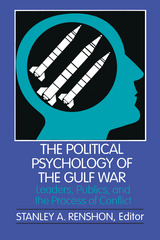
The United States is the only nation in the world that allows its citizens to hold one or more foreign citizenships, vote in another nation's elections, run for or be appointed to office in another country, and join the armed forces even of a nation with interests hostile to those of the U.S. while retaining their citizenship. These policies reinforce the often already strong emotional, political, and economic ties today's immigrants retain to their home countries. Yet few studies have addressed what dual citizenship means for the United States as a nation and the integration of immigrants into the American national community. Is it possible to reconcile two different nationalities, cultures, and psychologies? How can we honor immigrants' sense of identity without threatening American national identity? What do Americans have a right to expect of immigrants and what do they have a right to expect of Americans?
In The 50% American political psychologist Stanley Renshon offers unique insight into the political and national ramifications of personal loyalties. Arguing that the glue that binds this country together is a psychological force—patriotism—he explains why powerful emotional attachments are critical to American civic process and how they make possible united action in times of crisis. In an age of terrorism, the idea that we are all Americans regardless of our differences is more than a credo; it is essential to our national security. Comprehensive in scope, this book examines recent immigration trends, tracing the assimilation process that immigrants to the United States undergo and describing how federal, state, and local governments have dealt with volatile issues such as language requirements, voting rights, and schooling. Renshon turns a critical eye to the challenges posed over the past four decades by multiculturalism, cultural conflict, and global citizenship and puts forth a comprehensive proposal for reforming dual citizenship and helping immigrants and citizens alike become more integrated into the American national community.

With enormous numbers of new immigrants, America is becoming dramatically more diverse racially, culturally, and ethnically. As a result, the United States faces questions that have profound consequences for its future. What does it mean to be an American? Is a new American identity developing? At the same time, the coherence of national culture has been challenged by the expansion of—and attacks on—individual and group rights, and by political leaders who prefer to finesse rather than engage cultural controversies. Many of the ideals on which the country was founded are under intense, often angry, debate, and the historic tension between individuality and community has never been felt so keenly.
In One America?, distinguished contributors discuss the role of national leadership, especially the presidency, at a time when a fragmented and dysfunctional national identity has become a real possibility. Holding political views that encompass the thoughtful left and right of center, they address fundamental issues such as affirmative action, presidential engagement in questions of race, dual citizenship, interracial relationships, and English as the basic language.
This book is the first examination of the role of national political leaders in maintaining or dissipating America’s national identity. It will be vital reading for political scientists, historians, policymakers, students, and anyone concerned with the future of American politics and society.

In these original essays, widely respected experts analyze the personal psychologies and public belief systems of the individuals and nations involved in the Gulf War - from George Bush and Saddam Hussein to the peoples of the United States, Israel, and Arab countries. Approaching the events of 1990-1991 from the perspectives of psychology, history, mass communications, and political science, these scholars examine the dynamic relationship of events, behavior, and perceptions.
Part I deals with the psychological and political origins of the war; part II focuses on George Bush, Saddam Hussein, and the nature of their leadership and judgement; part III discusses the battle for public perceptions and beliefs waged by both sides; part IV analyzes the results of that battle as revealed by the understanding of the U.S., Israeli, and Arab publics; and part V deals with the war’s consequences. A postscript by Stanley Renshon covers military actions in the Gulf in late 1992 and early 1993.
READERS
Browse our collection.
PUBLISHERS
See BiblioVault's publisher services.
STUDENT SERVICES
Files for college accessibility offices.
UChicago Accessibility Resources
home | accessibility | search | about | contact us
BiblioVault ® 2001 - 2024
The University of Chicago Press









